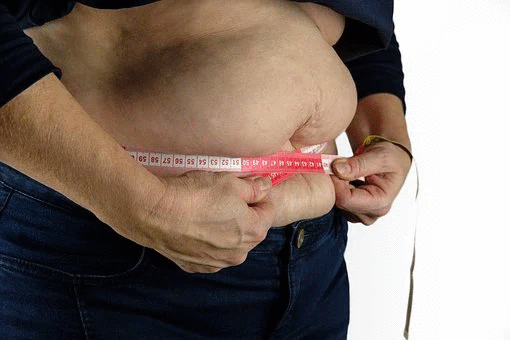By Doc Willie Ong, MD (Internist and Cardiologist)
As a summary to living healthier, here are ten numbers every person should know. Read on and learn about them. Be sure to keep them below danger levels.
Your Blood Pressure: 120 over 80, or lower.
The first number in the blood pressure refers to the pressure in the arteries when the heart is pumping. The second number correlates to the pressure when the heart is relaxed. The optimal blood pressure based on scientific studies is 115/76. To make this easier to remember, doctors round it off to 120/80. A blood pressure in excess of 140/90 (either one of the numbers) is considered high and must be treated with lifestyle change and/or medications. How important is this number? Well, if a person with a pressure of 160/90 reduces his blood pressure to 120/80 through medicines, he will live approximately nine years longer.
Your Heart Rate: Within 60-90 a minute.
The normal heart rate at rest ranges from 60 to 90 beats a minute. You may check your heart rate by taking your pulse at the wrist area or the neck area. The most accurate heart rate is determined by listening to the heart with a stethoscope. An athletic person may have a heart rate as low as 50, which is normal for him. However, if a person’s resting heart rate is persistently above 90 beats a minute, he needs a check up to rule out thyroid disease, anemia, heavy smoking and other disorders. When we exercise, our heart rate increases, but it should return to normal within two to four minutes of resting.
Your Waist Line: Less than 35.5 inches for males and less than 31 inches for females.
Now these numbers are a bit difficult to accept. But research shows that if your waistline (measured at the belly button and not the pants area) is less than 35.5 inches in males, and less than 31 inches in females, then you are in the ideal range. However, if your waistline is more than 40 inches in males, and more than 37 inches in females, then you are at the highest risk for a heart attack and stroke. People in between those numbers are at moderate risk and should try to reach their ideal body weight.
Your Ideal Body Weight: Within 10% of the Ideal.
Your ideal body weight is shown in the accompanying table. Try not to exceed 10% of your ideal weight. Anything more than 20% of the ideal weight is already labeled as obese. The higher the weight, the greater the risk for diabetes, arthritis and heart disease.

Your LDL Cholesterol Level: Lower than 130 mg/dl.
Your LDL cholesterol is the ‘bad’ kind of cholesterol. It breaks apart easily and gets stuck in the walls of your arteries, causing impaired blood flow. If a middle-age man reduces his LDL cholesterol from a high 180 mg/dl down to 100 mg/dl, this will make him three years younger. To reduce your LDL cholesterol, reduce your intake of beef and pork, and increase intake of fish, oatmeal and vegetables. Monitor your cholesterol levels at least once a year.
Your Oxygen Saturation Level: 95% or higher.
A pulse oximeter is a portable device that measures the amount of oxygen in your blood. The better your lung and heart function are, the higher your oxygen saturation rate. Young adults usually have higher oxygen saturation levels of 98% or more. However, for chronic smokers and city dwellers, this level goes down. Breathe clean air, avoid cigarette smoke and use air-conditioning. All these will help keep your lungs strong and healthy. Practice slow and deep breathing for five to ten minutes in the morning and at night. It’s relaxing and good for your lungs.
Your Fasting Blood Sugar: 100 mg/dl or lower.
A blood sugar level higher than 100 mg/dl means that you are not normal. If you don’t watch out, this will lead to diabetes and its frightening complications. The excess sugar in your body causes damage to your arteries, causing cracks and holes to appear in the walls. If you have a first degree relative with diabetes, try to keep your blood sugar lower than 90 mg/dl. Avoid simple sugars like donuts, candies and cake icings. Go for more vegetables.
Your Body Fat: Less than 25% (for males), and less than 30% (for females).
Manny Pacquiao has a body fat of 10%. Wow! But for us ordinary mortals, the ideal numbers are less than 25% body fat for males and less than 30% for females. Women have more body fat because of their breasts and wider hips area. To reduce your body fat, you have to exercise more to build more muscle mass. Also, reduce your fat and food intake to keep your weight down. There are body fat measurements available in gyms.
Your Sleep Hours: At least 7 to 8 hours.
Sleeping and resting is a great way to boost your energy. The best sleep is at night, especially from 11 PM to 3 AM, because this is the time the body exerts its regenerating powers. If you work the night-shift at call centers, then try darkening your room during the day to simulate nighttime sleep.
Your Bank Account.
It’s partly true that wealth can buy you health. You need money to buy nutritious food, and to pay for medicines and hospital bills. However, there’s a limit to what money can buy. Exercise, healthy diet and a healthy lifestyle are still your choices. Get a yearly check-up. And make sure you have some money stashed away for urgent medical needs.
Finally, have a list of emergency contact numbers at hand, like the hospital, the fire department, and others. Keep these lifesaving numbers handy for your health and peace of mind.
Dear reader, I hope you enjoyed this new collection of health articles. Continue taking care of your health and your family’s health. God bless everyone and take care!



